Theodoros George Andronicos 1881-1948
Theodoros George Andronicos
Tested To The Very Extreme
One hundred and ten years ago my grandfather, Theo Andronicos, left his home in the town of Potamos, to make the long voyage to Australia on an Orient Line steamship, the “Oruba”, disembarking at Circular Quay Sydney in July 1897. He was sixteen years old when he reached Australia.
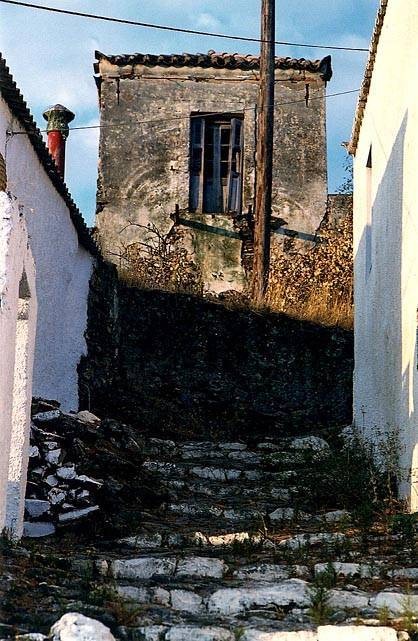
Grandfather neither returned to the island he called Cerigo, nor saw his parents again. His father, George Emmanuel Andronicos who worked away from the island, had a small tobacconist shop at Port Piraeus. His mother, Panagiotitsa, was a Panaretto before her marriage.
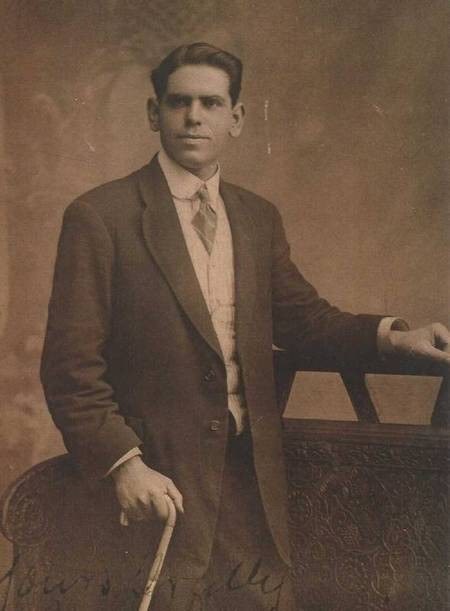
The details on Theo's naturalization certificate dated 26th June 1906, though brief, provide some insight into his early years in New South Wales. He spent four years in Sydney, beginning in the employ of John Cominos of Oxford Street, followed by two years in Narrabri with shorter periods in Boggabri and Uralla. His older brother Emmanuel, owned a fruit and confection business at Coonamble. Theo was a resident there when his brother died in 1910. When he returned to Sydney sometime in 1913, he met his future wife, Maude Mary Whyte.
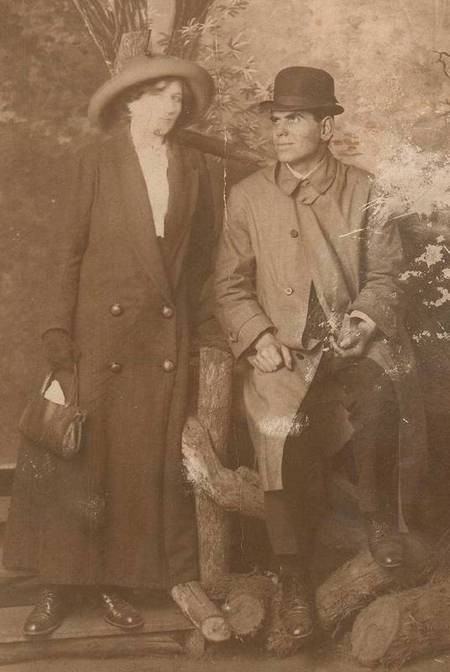
They were married in Brisbane in 1914. Theo had a good ear for music and as a young single man, played the violin at Greek community dances, accompanied by a bouzouki and mandolin player.
Most of what I know about my grandfather was told to me by my mother.
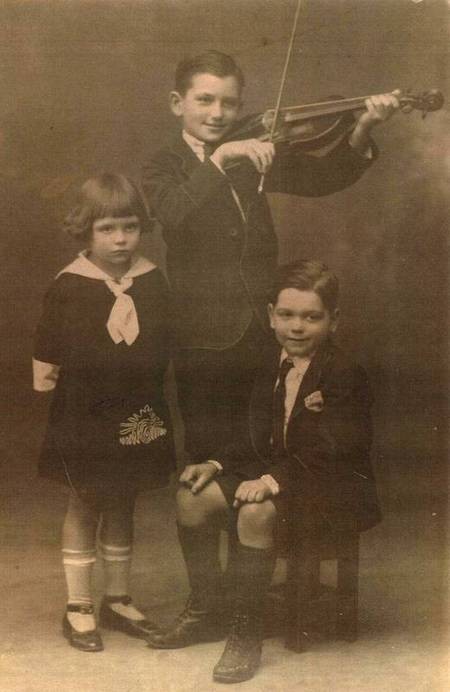
She was the only daughter and youngest child, and therefore held a special place in her father's affections. By nature my mother is friendly and outgoing, and has been blessed with a happy disposition.
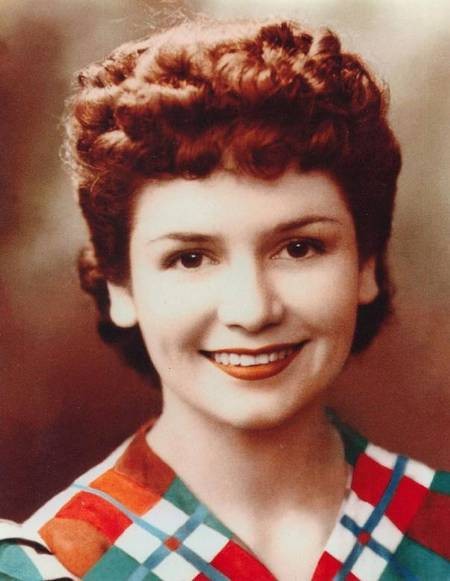
She was born in 1919 with the assistance of a midwife, at the residence behind their fish and chip and small goods shop at Given Terrace Paddington in Brisbane - the only one of Theo's children born at home. Her given name was Irene, but she has always been known as Rene. Two brothers preceded her. George who was the eldest, was born in 1915. He took his name from his paternal grandfather. Second son Emmanuel, was born in 1917. As a youngster his father called him Manolis, but I only ever knew him as Mal, Uncle Mal.
By the mid 1920's Theo had sold their Paddington shop and established himself in a cafe in Edward Street, Brisbane. With the help of his wife Maude their business began to prosper. She waited on the tables while Theo did the cooking. All three children attended good schools nearby. George and Emmanuel went to St. James Boys School in The Valley, while my mother began her schooling at St. Stephens Preschool, just around the corner from their cafe. Musical education was encouraged and both George and my mother had violin lessons.
My mother has fond memories of family outings during this period. On Sundays, they attended church in the morning, followed by an outing in the afternoon. Favourite destinations were the art gallery or museum at Gregory Terrace, or a stroll around the Botanic Gardens. It was considered a special treat to visit Christy Freeleagus's Astoria Cafe in Edward Street for ice cream served in silver dishes. They were a well dressed, handsome family and when they stepped out, heads always turned. Up to the age of nine, my mother recalls that their life was normal and happy, but this all changed when a series of tragic events occurred; first the death of a child, the breakdown of their mother's health, then the loss of their business.
A third son, James, was born in 1927. When he was only 10 months old, he died of double pneumonia during an influenza epidemic. The doctor who came to their house said that if he had been called sooner he might have been able to save him. Recollections of this part of my mother's life still evokes tears. Within the same year grandmother's health broke down. One morning, as she came down the internal stairs of their terrace home, she experienced her first epileptic seizure. Her children, who witnessed her fall, were horrified. There were no grandparents or other relatives they could turn to for support. With all of the worry and extra responsibilities of caring for a sick wife, dealing with an illness that was little understood and the upkeep of home and family, their business suffered and was eventually lost. During the next few years tough times lay ahead, and the Andronicos family was tested to the very extreme.
At the age of nine my mother was kept home from school to care for her mother while her father went to work. Her school threatened to prosecute him, unless her attendance improved. She was a bright student and loved school so it was a great hardship for her to miss even a half a day of classes. Many tears were shed as a result. With debts and medical expenses to pay Theo took whatever work he could find. At first he washed dishes and did kitchen work. As the economic downturn set in that brought hardship to so many families around Australia, the era known as the Great Depression, jobs became even scarcer. He accepted work that nobody else wanted. Theo commenced employment as a cook at a leper colony on Peel Island, an isolated lonely place in the middle of Moreton Bay east of Brisbane. A housekeeper was employed to help care for the family in his absence, but this proved to be an unsatisfactory arrangement. When his wife's health worsened she needed more specialised care and had to be hospitalised. Theo took on another job, again as a cook, this time at the Goodna Mental Asylum. The two younger children, my mother and her brother Emmanuel were placed in care at the Wilston Children's Home while George boarded with a family.
Separation from their parents was a sad time in their lives. Theo made them a promise. When their mother was well enough to leave hospital, he would come for them in a Hansom cab. He was true to his word! The Hansom cab that he hired was permanently stationed in front of Brisbane’s Supreme Court in George Street. The horse drawn cab was beautifully fitted out with polished leather seats and quality fabric lining, and with whip in hand, a top hat completed the cab driver's uniform. On the appointed day when Theo went to meet his children, he had the front door key of their new home, which was located on a very steep hill in the inner city suburb of Red Hill. When the children opened the front door they excitedly ran through the house to the back, exploring each room on the way. Not one of them slept that night as they were eaten alive by bed bugs. The next day armed with needles, they set about collecting the bugs from the cracks between the vertical wall boards. The landlady had assured Theo that the house was clean – that there were no bed bugs!
At the age of fourteen when my mother had completed primary school, she was expected to assist with the care of her mother. There were days during the height of summer when their Queenslander, with its iron roof, became unbearably hot. Windows and doors had to be kept locked to discourage grandmother from wandering. It was not much of a life for a teenage girl. To relieve the boredom my mother either read books or made herself clothes. By the time she had turned nineteen, their mother's health had improved. With her father's permission she was encouraged to look for employment. Theo had found a very good doctor for his wife, Dr. Winston Noble, who had practiced medicine in London, England, and was knowledgeable about the latest treatment for epilepsy.
A chance to work on a government funded road project at Mt Cootha, brought some financial relief. It was hard, physical pick and shovel work. Theo found himself working alongside men from all walks of life, bankmanagers, teachers and businessmen who like himself were unemployed. Mt. Cootha is Brisbane's iconic “hill”, today a popular tourist destination, which affords a panoramic view across the city and its surroundings. Theo supplemented his earnings by growing flowers and vegetables, and sold the flowers to his friends the Mavromatis brothers who owned a fruit shop opposite Roma Street Railway station. His gardening expertise eventually gained him a part-time job close to home maintaining the garden at the local police station. During those years with money always in short supply most of Theo's personal valuables, his gold watch and chain, gold sovereign case and diamond ring were sold, including his violin.
Towards the end of the 1930's sons George and Emmanuel, who were now in employment, bought the house they lived in at No.10 Craig Street, Red Hill. Emmanuel became a qualified pastry cook having served his apprenticeship at the Kookaburra Cake shop opposite McWhirters in The Valley. During World War II, both brothers served in the Australian Army as part of the allied forces “mopping up” exercise in New Guinea and New Britain. On their release from the army they set themselves up in business as taxi proprietors with Black and White cabs. One night my mother overheard a conversation between brother Emmanuel and her father, through the thin V.J. wall of her bedroom, “Rene must never marry.” It was then that she made the decision to leave home, a decision that did not prove very popular. However she was determined, believing she deserved a chance to lead a normal life. In 1941 she married my father, Arthur Reeve. They had already known one another for several years. Together they established the Boulevard Motel at Indooroopilly in Brisbane's western suburbs, a popular restaurant, nightspot and venue for the judging of the Miss Australia and Sun Girl quests during the 1950's. Emmanuel eventually bought out George's share of the Craig Street house, and lived there until his death on Christmas Eve 1999. George passed away in January 1994.
Throughout his life Theo had faced many trials, the death of loved ones, loss of his business and his wife's illness. He was devout in his Orthodox faith and attended church once a month. He never missed the daily ritual of prayer, which he always said in Greek. Family and the Kytherian friends he met with at the Greek Club formed the nucleus of his social life and his main interests were gardening and discussing politics. One of his best friends was Con Andonara who owned a fresh fish shop in Albert Street, Brisbane.
His family remember their father as a very kind, warm, generous hearted man. He was a qualified cook, the only cook in the household and the meals he prepared have become in a sense legendary, the subject of many family anecdotes. Theo found enjoyment listening to music from his record collection, which he played on a wind-up gramophone. Among his favourites were Dame Nellie Melba and the Greek tenors. Throughout his married life Theo never wavered in his devotion and care for his wife. Grandfather, who had suffered from chronic bronchitis for many years, was aged sixty-eight when he passed away in 1948 due to lung cancer. Because he was unwilling to go to hospital, my mother went to nurse him in his last week of life. He shares a grave with his wife Maude and infant son James on a hillside at Brisbane’s Toowong Cemetery.
Four generations of children have been born since grandfather first stepped onto Australian soil in 1897. Our family's Kytherian heritage is embodied in a tradition of oral history kept alive through the retelling of anecdotes and stories. Whether my mother, now in her eighty-eighth year, is cooking, gardening, socialising with her family, or feeding the butcher birds that flock to her tree filled garden -- there is usually a related story to tell.